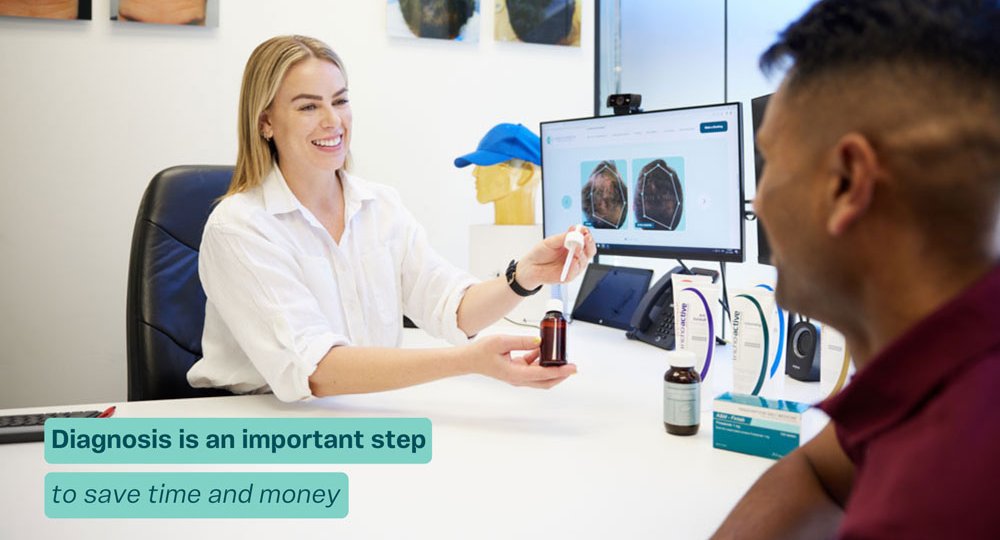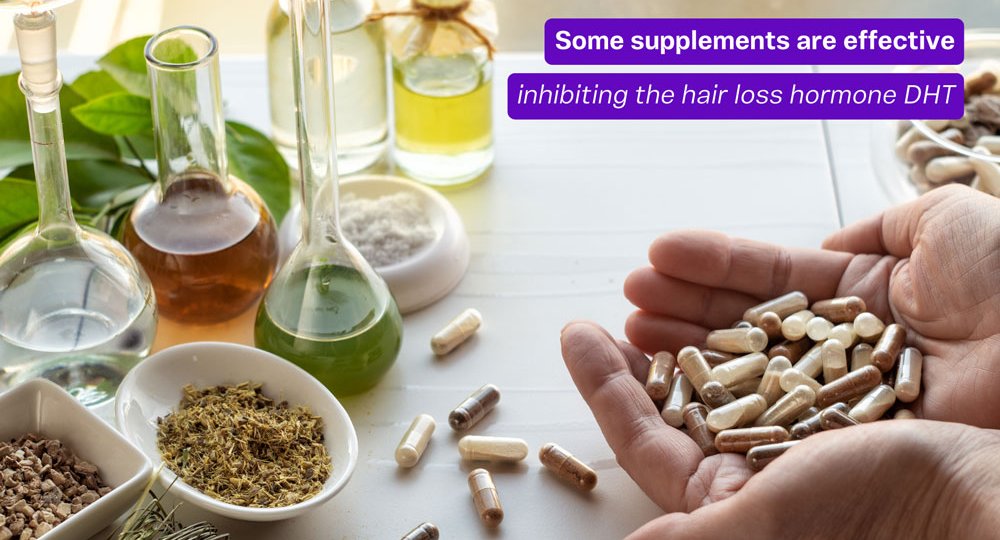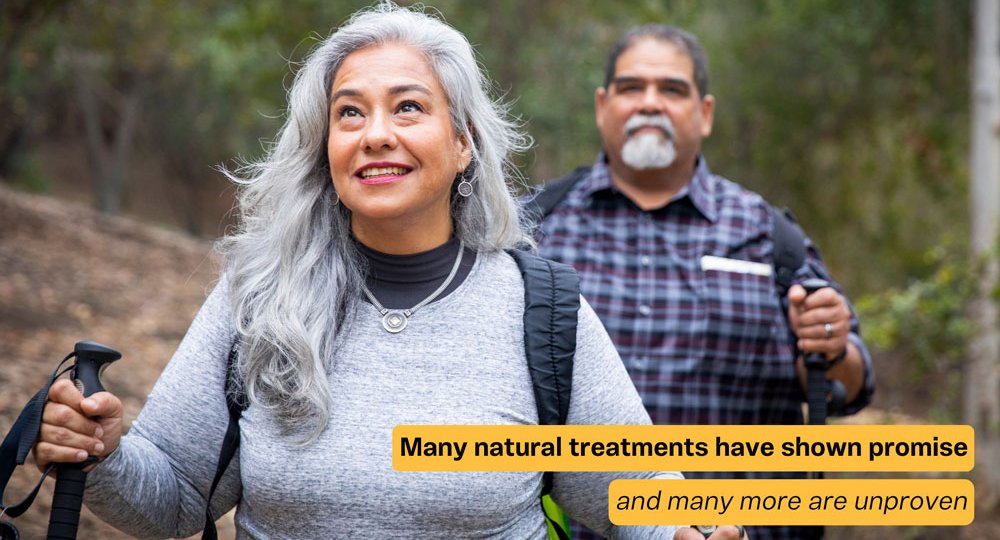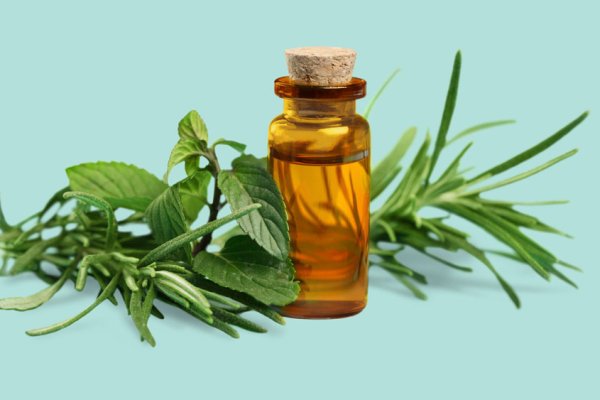What works when it comes to natural hair loss treatments?
Hair loss drugs aren’t for everyone. Many don’t like the idea of taking anything that carries even the smallest risk of side-effects. For others, including pregnant women and those under 18, some hair loss medications are not recommended as they could potentially impact physical development.
If hair loss drugs aren’t for you, it doesn’t mean there’s nothing you can do to fix your hair. There are many natural hair loss products available that have shown promise treating hair thinning and stimulating new growth.
In this comprehensive guide, we delve into all the best natural hair loss treatments. From hair care supplements to herbal remedies, we’ll let you know what really works and what’s just wishful thinking.

Mixed reviews: Why consultation matters
Read the reviews for any hair loss product and you’ll see some who swear by their results and others who say it’s just snake oil.
This is usually because there’s no single hair loss treatment that’s effective against all conditions.
Genetic conditions, hormone imbalances, inflammation, oxidative stress, dermatological conditions, nutrient deficiencies and elevated stress mediators like cortisol can all contribute to hair loss in different ways.
So, while a certain hair loss product might work for one person, it could be completely ineffective treating someone else. To get real results and make sure you’re not wasting your time and money, the most important thing you can do is diagnose the underlying causes of your hair loss condition.
To help you with this, Ashley & Martin provide free hair loss assessments. Here our consultants will examine your hair loss condition to identify what’s causing it and provide a list of recommended treatment options.
Hair loss supplements
Getting the right nutrients and proteins are essential for your hair follicles to function properly. This can be addressed with the right diet, or with supplements.
Some supplements that support the growth and strength of hair include:
Biotin
Biotin, also known as vitamin B7, is a crucial component for healthy hair. It plays a vital role in the production of keratin, a protein that makes up hair. While biotin deficiency is rare, supplements with biotin have shown positive effects on hair growth in some individuals.
Omega-3 Fatty Acids
Found in fish oil and flaxseed oil, omega-3 fatty acids contribute to hair health by nourishing hair follicles and promoting a healthy scalp. These essential fatty acids are known to reduce inflammation, a factor that can contribute to hair loss.
Vitamin D
Vitamin D is not only essential for overall health but also plays a role in hair follicle stimulation. Low levels of vitamin D have been associated with hair loss, so ensuring adequate intake or spending time in the sun is crucial.
Iron
Iron deficiency is a common cause of hair loss, especially in women. Incorporating iron-rich foods or supplements can help combat this issue and promote healthy hair growth.

Herbal remedies for hair loss
Some herbal extracts have also delivered promising results regrowing hair. Some popular options include:
Saw Palmetto
Saw palmetto is a herbal supplement that, when taken in tablet form, can help inhibit the production of dihydrotestosterone (DHT), a hormone associated with hair loss. Some studies suggest that saw palmetto can be effective in treating hair loss, particularly in individuals with female or male pattern baldness. Just beware of hair products and treatments that boast the inclusion of saw palmetto as an ingredient. It is unproven that saw palmetto can be absorbed in an effective quantity when applied topically (1).
Green Tea Extract
Rich in antioxidants, green tea extract has anti-inflammatory properties that may benefit hair health. If inflammation and stress are contributing to your hair loss, a green tea could be beneficial (2).
Hair loss shampoos
Hair loss shampoos often boast a range of natural ingredients such as caffeine and saw palmetto which have been linked to hair health. But the reality is, their effectiveness is usually limited.
This is as the concentrations of these ingredients are unlikely to be sufficient to have an impact when applied in a shampoo or conditioner.
When it comes to hair loss, the real benefit of the right shampoo is to keep your scalp clean which provides the right environment for other regrowth treatments to stimulate hair growth.
What to look for in a shampoo
For a quality shampoo that keeps your scalp clean, look for something that is sulphate free and PH balanced. See our favourite hair loss shampoos.
What to avoid
While not necessarily harmful, any shampoo advertising special hair growth ingredients such as caffeine or saw palmetto is unlikely to have a direct impact regrowing hair on its own.
Other drug free options for hair growth
Our understanding of hair loss has rapidly advanced over the last decade. This has led to the availability of some new devices that have helped many regrow more hair.
New hair loss devices include:
Laser Hair Growth Caps
Low-level laser therapy (LLLT) has gained popularity as a non-invasive treatment for hair loss. Devices such as laser hair growth caps or helmets use low-level lasers to stimulate hair follicles and improve hair density. This approach is backed by extensive research (3) and has been used in Ashley & Martin clinics for over a decade.
Dermarollers
Dermarollers are purported to work by creating tiny micro-injuries on the skin’s surface, stimulating the body’s natural healing processes and collagen production. It should be noted that data to date regarding the use of dermarollers is low quality and long term results are not yet proven (4).

What hair loss treatments don’t work?
While there are plenty of natural hair loss treatments that have shown a lot of promise, there are many more that are unproven. Some of these treatments that are more urban myths than medical science include:
Onion Juice
It is claimed that onion juice can promote hair growth due to its sulfur content. But there are simply not enough studies that show this has any effect other than as a placebo.
Aloe Vera
Aloe vera has moisturizing properties and may provide relief for a dry scalp, but its direct impact on hair regrowth is not well-established.
Coconut Oil
While coconut oil can be a good conditioner, its ability to stimulate significant hair regrowth is limited.
Egg Wash
Protein is crucial for hair health, but applying raw eggs may not be the most effective way to deliver it. A balanced diet is generally a more reliable source.
Get advice from a hair loss specialist
While there are many natural treatments that are promising, the effectiveness of any solution will vary from person to person.
For noticeable results regrowing your hair, it is essential to get your own treatment plan that addresses the individual causes of your hair loss condition.
Free consultations are available from Ashley & Martin. Here we’ll let you know all your options and give you a plan that you are comfortable with, and can be confident in.
References
- National Library of Medicine, “Natural Hair Supplement: Friend or Foe? Saw Palmetto, a Systematic Review in Alopecia” https://pubmed.ncbi.nlm.nih.gov/33313047/
- National Library of Medicine, “An Overview of Herbal Alternatives in Androgenetic Alopecia” https://pubmed.ncbi.nlm.nih.gov/30980598/
- National Library of Medicine, “Role of Low-Level Light Therapy (LLLT) in Androgenetic Alopecia” https://www.ncbi.nlm.nih.gov/pmc/articles/PMC8906269/
- National Library of Medicine, “Microneedling and Its Use in Hair Loss Disorders: A Systematic Review” https://www.ncbi.nlm.nih.gov/pmc/articles/PMC8776974/
